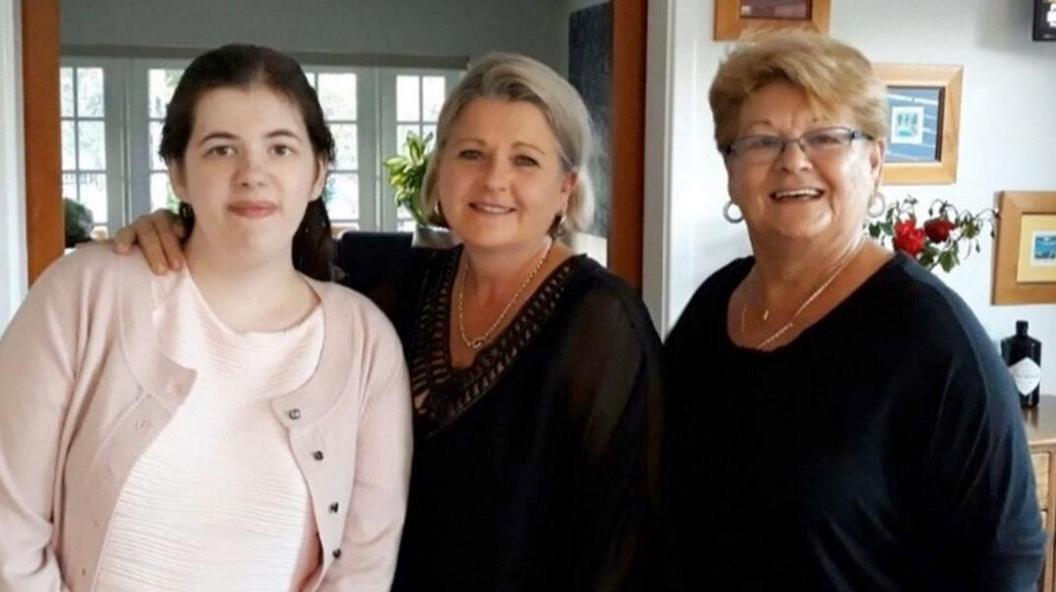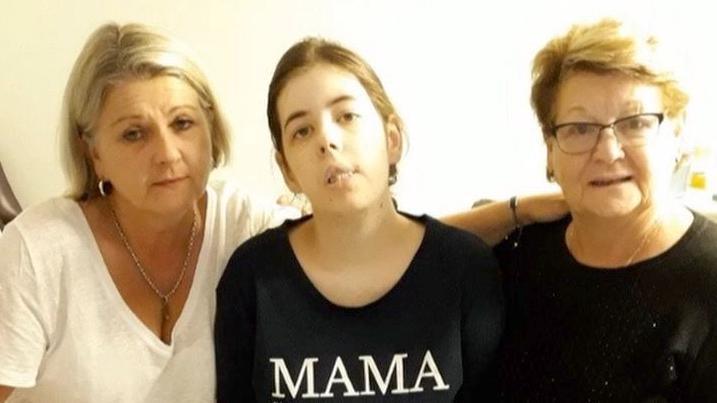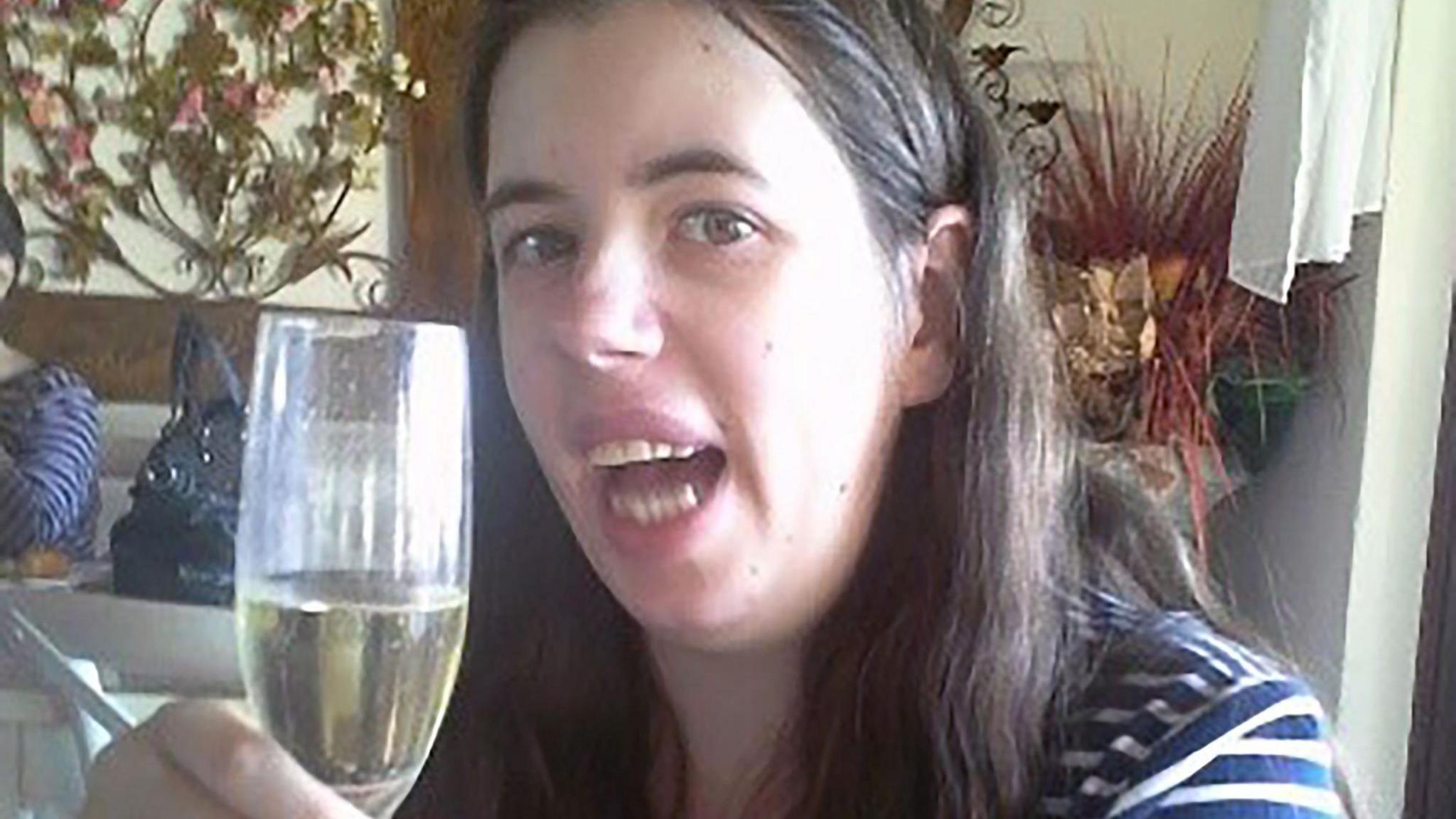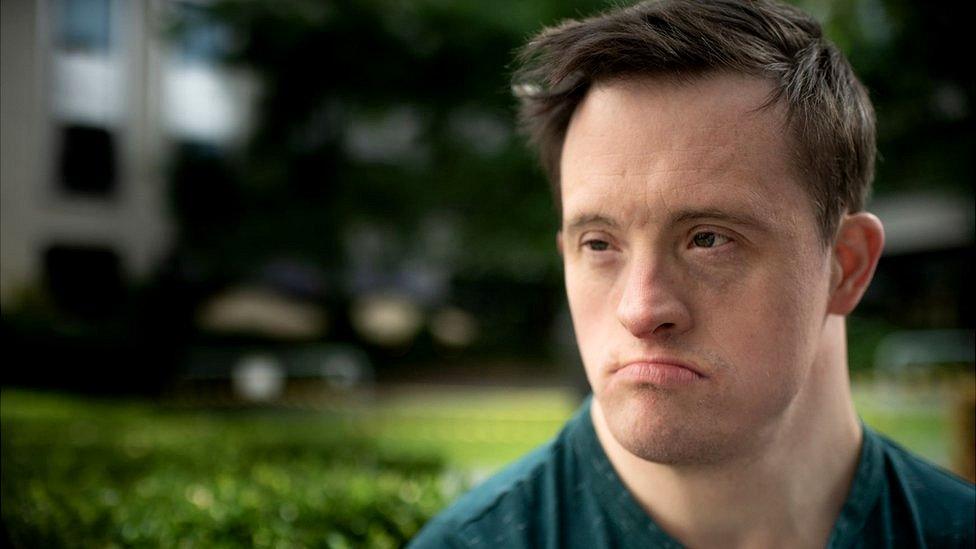Aunt 'horrified' over niece's care, inquest told

Chloe, with her aunt Lisa and grandmother Jeannette Every, in Australia in 2018
- Published
The aunt of a woman with learning disabilities and a serious muscle condition has told an inquest her niece died "distressed and in pain" because "no one had a proper understanding of her condition".
Chloe Every, 27, died in May 2019 after several days of treatment at Queen's Hospital, Romford.
An initial review said the quality of Chloe's care had been good or excellent, but senior coroner Graeme Irvine described the finding as "brief and glib".
The inquest, at East London Coroner's Court, heard further investigations raised a list of "troubling" concerns.

Chloe, centre, had myotonic dystrophy and struggled to communicate
Chloe had myotonic dystrophy (MD), a genetic condition that causes progressive muscle weakness.
In April 2019 she was admitted to hospital where a scan revealed possible signs of cancer, the inquest heard.
Chloe was agitated and in pain, and needed to use sign language as she struggled to communicate how she felt, her aunt Lisa Every - who lives in Australia but has flown to England to attend the inquest - said in a statement read out in court.
She was given morphine, which can cause breathing problems for people with her muscle condition, the inquest was told.
Three days later, she was resuscitated after going into cardiac arrest and after another five days, she was moved into a general ward where she died.
Specialist learning disability nurses were not involved in her care, the coroner heard.

An initial cause of Chloe's death was found to be natural
The inquest heard reviews into her death had raised a list of "troubling" concerns, including:
Chloe should not have been left in a medical unit for more than 12 hours; she was there for six days
Her consultant neurologist was not contacted
There was no obvious treatment plan
Pain relief seemed to be administered on an ad-hoc basis
There was an absence of discernible note-taking before Chloe had a cardiac arrest
'Fight for her life'
On 6 May 2019, Chloe's family was told a cancer diagnosis could not be confirmed without a biopsy, but no one talked to them about “whether there was an alternative route to managing Chloe’s condition than having a biopsy or if there were any risks to the procedure”, her aunt's statement added.
“If she had been given palliative care from the moment she was admitted I believe all her distress would have been avoided," she said.
“Further, if it had been discussed with us earlier whether a biopsy was needed we could have chosen not to have one.
“If earlier abnormal blood results - done in February 2019 - were acted on and her cancer was suspected and identified sooner, she would have been given the opportunity to fight for her life or choose a different palliative care pathway than what she got.
“I could have flown back earlier and nursed her together with my mum in the hope this could have led to a more comfortable passing surrounded by all those that loved and cared for her.”
'So angry'
Mr Irvine began the inquest by setting out the timeline of how it had come about, as an initial cause of death was found to be natural.
He read out Ms Every's statement: "I pushed for an investigation, and it was only after this happened that I realised how many issues there were with Chloe’s care.
"I know that most of the staff were doing their best but it felt as though no one had a proper understanding of her condition which is why I am so angry at the lack of integrated care with the consultants and clinicians who were all responsible for Chloe's care."
The inquest continues.
Listen to the best of BBC Radio London on Sounds and follow BBC London on Facebook, external, X, external and Instagram, external. Send your story ideas to hello.bbclondon@bbc.co.uk, external
Related topics
- Published10 October 2022
